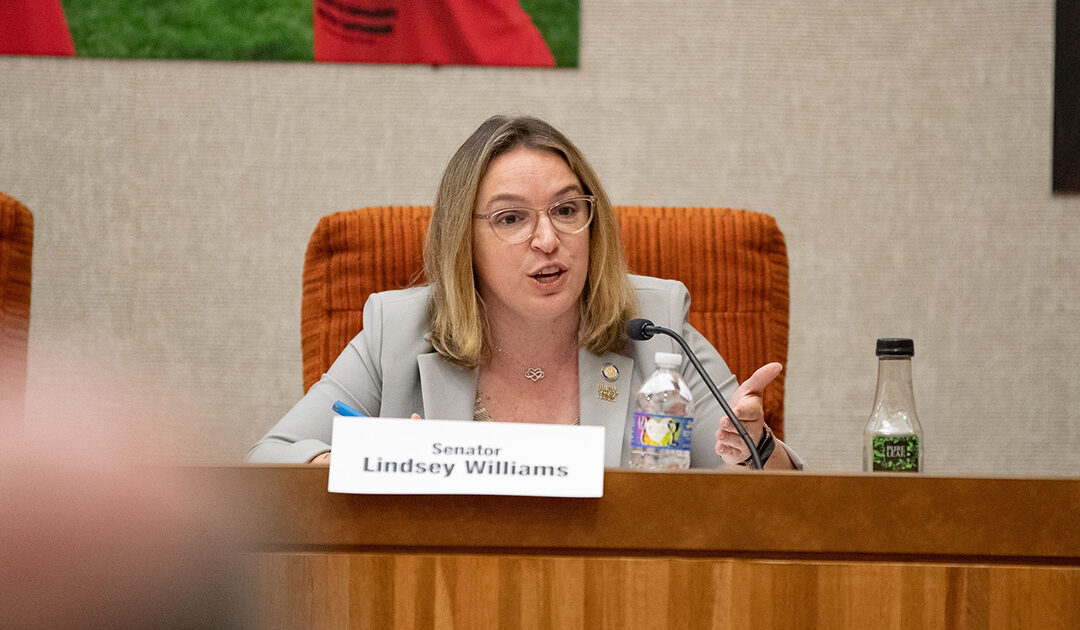Pittsburgh, Pa. − September 12, 2023 − Senator Lindsey M. Williams (D-Allegheny), Minority Chair of the Senate Education Committee, issued the following statement after the first hearing of the Basic Education Funding Commission (BEFC) in Allentown:
“Today, the Basic Education Funding Commission held its initial hearing. Our first testifier, Dr. Matthew Kelley, Assistant Professor at Penn State University, laid out updated adequacy targets for each of our Pennsylvania school districts. These adequacy targets represent an important first step in determining what each district would need to spend to ensure that students who walk through their doors receive a comprehensive, effective, and contemporary education. The targets take into account many factors that students require to succeed in school and then make adjustments based on individual districts and student needs.
This is the first time since the Commonwealth Court decision that we are having a conversation about adequacy and equity in education for all of Pennsylvania’s students. Pennsylvania’s Founders included provisions for a thorough and efficient system of public education in our Constitution for a reason. They realized something that we often take for granted—that an educated citizenry is essential to the future of our Commonwealth. Right now, the General Assembly is violating the constitutional rights of all of our students. Today marked the start of the conversation around how we remedy that constitutional violation.
A final report of the BEFC must address adequacy and equity targets and put a realistic plan in place to achieve these benchmarks. While the BEFC and resulting report are important, they cannot possibly address everything that is necessary to create a safe and inclusive system of public education that welcomes all students – no matter their race, creed, identity, or ability. We need to address funding Career and Technical Education (CTE), Pre-K, transportation, building start times, and more. We also cannot ignore the impacts our ongoing disinvestment in higher education has on our K-12 spaces, and how that has impacted our teacher pipeline and the number of other qualified professionals available to our students.
The goal and purpose of public education is fundamental and the factors that impact it are innumerable. Students need a system that meets their unique needs. And while the numbers that come out of these hearings might seem overwhelming at first glance, it’s important to know that they aren’t an attack on working families—these dollars are meant to uplift working families.
Pennsylvania’s budget consistently leaves money on the table through policies that prioritize corporate interests over people. We could close the Delaware Loophole, which allows companies operating in Pennsylvania to avoid paying state corporate income taxes. We could tax so-called non-profits like UPMC. We could legalize and tax adult-use cannabis and institute a severance tax on natural gas extraction. We leave billions on the table in revenue that could improve the quality of life of not only our students, but all Pennsylvanians. What’s worse, we do not have strong protections for those who come forward to report the waste, fraud, and abuse of state taxpayer dollars that we do collect—so when those dollars are misspent, we do not have a mechanism to recapture them.
Budgets are moral documents, and the recent Pennsylvania budgets simply do not reflect the values that our founders or current Pennsylvanians hold. We have not invested in our students or our futures. Instead, we are protecting corporate interests and protecting health care giants, all while not taking common sense steps to make sure that we are not wasting taxpayer money. This is not how Pennsylvanians would choose to spend their money—and it is not how Harrisburg should decide to spend it for them.
It is long past time to address the inequitable and underfunding of Pennsylvania’s public schools. I truly believe that every single one of our students can be successful—but that cannot happen without equitable and adequate financial support.”
###

